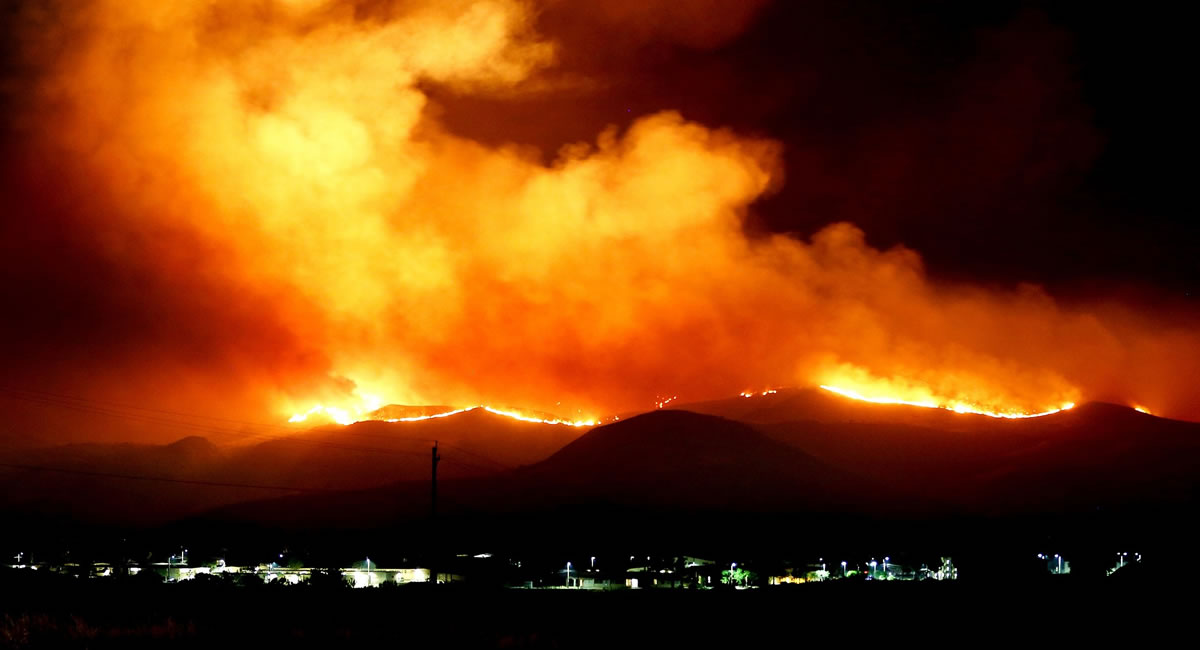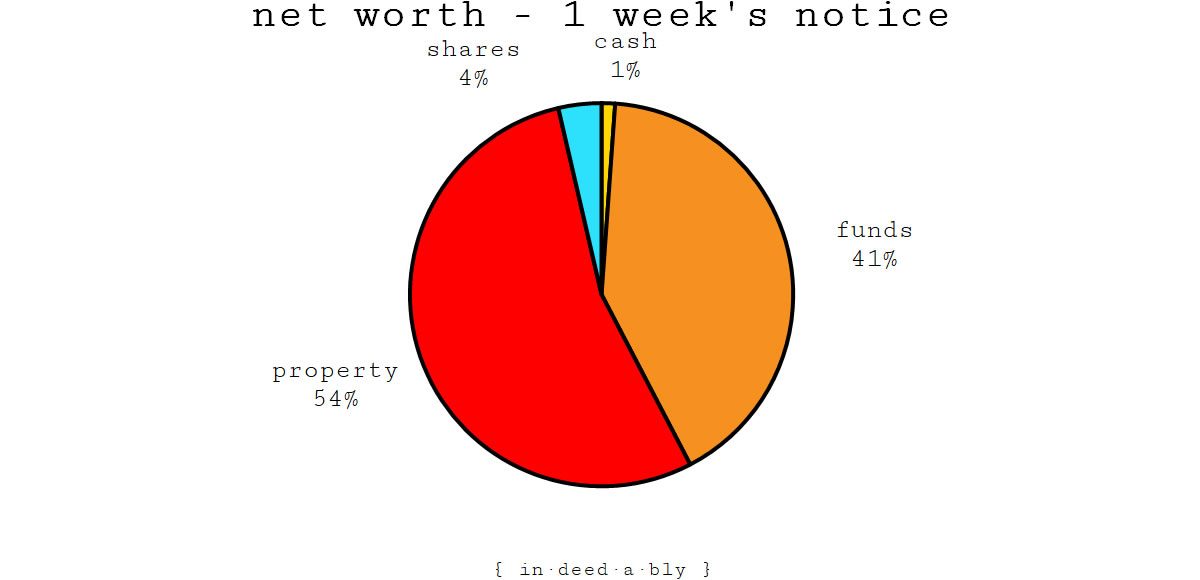“‘If I had to be gone, and I mean seriously gone, in about eight hours… what could I leave with?’ asked Rene Russo in the movie The Thomas Crown Affair.
We like to keep score of our total net worth, but how much is accessible immediately? In a day? A week? A month? If you had to pack a bag and flee what could you take with you? And where would you go?”
This is a thought experiment in the style of those proposed by SavingNinja. The one thing asked of participants is for a stream of consciousness outpouring of thoughts rather than a carefully polished article. Here goes…
Road warriors
Over the years I have managed many teams of consultants.
These teams have typically included some professional road warriors, who have opted to lead a “have skills, will travel” lifestyle out of a suitcase, often miles from home.
From what I observed, this existence appeared to be tough on long term relationships.
The majority didn’t have one. Plenty of failed short term relationships though!
The few who did tended to feel like visitors in their own homes. Their family’s established routines happening around them, like a river flowing around an inconveniently placed obstacle.

Lost in Translation. Image credit: IMDB.
If you haven’t experienced it, comprehending the loneliness and isolation experienced by a road warrior can be difficult. The movie “Lost in Translation” did a good job of bringing it to life.
Along with the gym and the bar, a common coping mechanism for killing time during the empty hours between visits to the client involved seeking kindred spirits to “love the one you’re with”.
There tended to be plenty of drunken hook-ups with co-workers, with an unspoken rule that “what happens on the road, stays on the road”.
Unfortunately for me, this frequently created plenty of staffing issues! Gossip and hurt feelings spread like ripples on a pond, after somebody has lobbed in a rock.
Regardless of whether the road warrior sought solace in a bottle, a barbell, or a booty call; they all had one thing in common: they never unpacked their suitcase during the brief visits home.
Bags packed, next to the door
The reasoning behind keeping a bag packed by the front door was that they knew they would soon be dispatched on their next assignment, and whenever it was they were ready to go at a moment’s notice.
The old boy scout motto applied: “be prepared”.
Maintaining a survival kit for life on the road was a sensible time saver. Constantly unpacking and repacking wasted precious time at home, and introduced a high risk of forgetting things on the next trip.
The alternative was to either live out of the suitcase when at home (a practice favoured by the single male consultants), or maintain a duplicate set of personal items at home so the suitcase could be left packed, ready, and waiting for the next expedition.
Abandon ship
The town I grew up in was prone to bushfires.
Occasionally these were started by lightning.
More often they were caused by boundless levels of human stupidity: firebugs, idiots flicking cigarette butts from car windows, or sunlight refracting through broken glass.
One of the fire safety messages promoted by the authorities at the time was for people to prepare a “go bag”.
A change in wind direction can redirect a bushfire unexpectedly. This leaves residents with very little warning before they need to escape the rapidly approaching inferno.
The logic behind a “go bag” was you could grab it on the way out the door, safe in the knowledge that you had already calmly and carefully packed all you may need to survive for a few days. This would be important if your house burned down!
A “go bag” was supposed to contain the essentials:
- a first aid kit
- food, water… and water purification tablets
- blanket
- change of clothes
- cash and a spare credit card… the latter proved optimistic, as bushfires and telecoms equipment don’t like each other much.
- battery-powered radio and spare batteries… so you could stay informed of further evacuation warnings, and arrangements for emergency shelters.
After the first time we had need to use our “go bags“, my father also made sure we each carried something sufficiently sharp and hefty to deter looters or the unwelcome advances of over-friendly “Good Samaritans”.
Natural disasters bring out the best in some people… but the absolute worst in an awful lot more!
When faced with evacuation some people panic load all their possessions into, onto, and towed behind their vehicles. Without fail, one of these overloaded cars or trailers would lose their load going around the first bend. This blocked the road, potentially trapping their neighbours in the path of a raging firestorm.

A sense of impending doom. Image credit: skeeze.
There is no place like home
Over the years I’ve persisted with the practice of maintaining a “go bag”.
The threats have evolved with each geographic relocation and life phase. Bushfires giving way to unfavourable immigration decisions, week-long blackouts, and ailing elderly relatives.
These days mine isn’t as fully stocked as the consultant carry-on suitcase, nor as “prepper ready” as my father’s “go bag” once was.
However it has proven incredibly useful on these rare (but always unexpected) occasions where I’ve needed to drop everything and go.
My general philosophy while travelling has been that providing I have my passport and a valid credit card, then I can buy/replace anything I may need on the road.
That approach has worked out nicely just about everywhere I have been (with the notable exception of Cuba!).
However it operated under the implicit assumption that the credit card would be accepted, and I would have the means to pay off the balance upon my return home.
What if I couldn’t return home?
No way back
What if I had to leave the country unexpectedly?
What if I was prevented from returning?
Such things are hardly unprecedented. Just look at the news headlines:
- 10 years ago Syria was a prosperous country, today roughly half the population has been displaced.
- 5 years ago the Crimea was a lovely place to go for a Ukrainian beach holiday. Today it is a reluctant part of Russia.
- History and popular culture are full of tales of spontaneous destruction: mythical Atlantis, biblical Sodom and Gomorrah, historical Pompeii, and modern-day Plymouth.
Imagine you were told you needed to evacuate your home right now, never to return.
What could you take with you?
Where would you go?
Immediate exit
These are troubling questions. For this thought experiment I will assume I am leaving the country.
Our net worths are constructed from an assorted collection of assets and investments, each of which has different settlement periods, degrees of liquidity, and age restrictions.
Physical cash you could take with you. If you had to flee right this second then you would do so with just your wits and the contents of your purse/wallet! We may live to regret living in a cashless society.
One day’s notice
Cash held at the bank is less certain.
Credit and debit cards are subject to daily withdrawal limits, so that may cramp your style somewhat.
How much of my net worth would be accessible with just one day’s notice? Not a great deal, only 1%!

Back in the old days, we would buy traveller’s cheques on a credit card, then cash in those cheques for cash.
When was the last time you saw a traveller’s cheque? Would anyone under the age of 40 even know what one was?
Of course that is assuming you can still access your bank accounts.
Assuming the bank will honour your request.
Assuming the bank even still exists!
What about other asset classes?
One week’s notice
At the time of writing, most leading stock markets operated on a settlement period of two business days after a sale.
Few brokers currently support the “faster payment service”, preferring to use the slower BACS system (3 days) or charge a premium to use the faster CHAPS system (up to 1 day).
Mutual funds can take longer, as they only trade once per day.
Given a week’s notice less than half my net worth would be accessible, 46%!

Provided the markets remain functioning.
Providing your accounts haven’t been frozen.
Then it should be possible to liquidate your holdings within a week.
One month’s notice
Cashing in peer-to-peer loans is subject to the whims of supply and demand. Performing loans with attractive returns sell relatively quickly. Delinquent loans don’t sell at all.
I exited peer-to-peer lending a couple of years ago, when there seemed to be more lenders seeking high returns than there were borrowers with worthy projects to execute.
At that time it took two to three weeks to sell the majority of my loan parts, the remainder (roughly 5%) I couldn’t sell at all.
Some of those residual loan parts were eventually repaid. The rest provided a valuable lesson that peer-to-peer lending is essentially providing expensive unsecured loans to borrowers who have already exhausted conventional lending options.
The majority of the individual borrowers are well-intentioned, but when the economy takes a turn for the worse, many of them will experience a bumpy ride all at the same time.
One month’s notice closely resembles that which I could liquidate within a week. The remaining assets would require much longer.

Three month’s notice
In the United Kingdom the property conveyancing process is broken.
On average it takes three months for a property sale to complete. Properties caught up in chains can take far longer.
In Australia it is half that.
New Zealand does it better still, requiring just a month.
With a three month run up, I should have been able to liquidate my property holdings.

One day, some day… maybe
Investment interests that are not publicly listed can take quite a while to liquidate, if it is possible at all.
Angel investments, venture capital, and direct business ownership all require finding a purchaser who is willing to buy you out of your stake.
That process is seldom quick nor easy, particularly if you hope to obtain a price at more than mere cents on the dollar.
For the purposes of liquidating assets, age restricted pensions might as well not exist if you are younger than the access age.
It is sometimes possible to transfer pensions overseas, but this is a time-consuming process involving a lot of paperwork and evidencing that the foreign pension setup is functionally the equivalent of that operating in the United Kingdom.
What could I take with me?
The series of charts displayed above demonstrate that when it comes to an unexpected exit, we are potentially worth a lot less than we think we are.
The more urgent the need to abandon ship, the great the portion of our net worth that is left behind.
This thought exercise has highlighted that my financial plans contain some implicit assumptions about continuity, the rule of law, and the absence of natural disasters.
Fingers crossed those assumptions hold true!

[HCF] 15 January 2019
This is a good thought experiment. I am pretty sure that here, in the heart of Europe, we are not really prepared for such a thing these days. However, I remember well when the situation was different. Not because of natural disasters but because of a lengthy reign of a radical dictatorship where we (a minority which is living on its stolen part of their homeland to the very day) were not welcome. I have seen many youngsters fleeing in a short notice (sometimes in less than 8 hours indeed) from being recruited to an army which is not theirs to wage a stupid war which is not theirs on lands which are not theirs. I also have seen the consequences on others who choose not to go. The former group was the luckier needless to say. These days you would probably drop your gadgets also into that “go bag”, back in the time it was just a couple of changes of clothing and as you told, your passport and your wallet. Forget about cards, cash is king in such situations just be sure it is in a valid currency. Maybe I am a little bit pessimistic but even nowadays when that dictatorship is formally long gone I pretty much feel the necessity to have this bag around… The ghosts of the past are still living amongst us.
{in·deed·a·bly} 15 January 2019 — Post author
Thanks HCF.
It is surprising how quickly the spectre of conscription or compulsory military service has been forgotten in many countries. Every now and again some self important politician will stand up and declare that military service should be reintroduced to instil a (sorely lacking) sense of discipline into the “youth of today“. This seems to be one of those good ideas for other people, however I am yet to hear it suggested by someone who would be personally conscripted as a result of its reintroduction!
Where I grew up there were several Spanish families who had migrated to escape compulsory military service. Once they passed the upper age threshold, they returned home. Generally these weren’t people fleeing in the dead of night, but those with the luxury of time and forward planning.
Similarly there were occasional cases reported of conscription age guys being detained while visiting their parent’s/grandparent’s homeland, because they had inherited citizenship (whether they realised it or not) and had failed to report for duty. A planning error on their part, but one that potentially cost them years of their life.
For what it is worth, I don’t think you are being pessimistic. It doesn’t cost much to be prepared, and hopefully those preparations will never need be put into action. However should that time come, you will be very grateful you had planned ahead.
[HCF] 15 January 2019
Despite all my dislike towards military involved situations I think that going through the basic training (it used to be three months) could be beneficial to young adults but only if the proper background (financially, hygienically, nutritionally, etc…) could be provided by the military which is not the case according to the experiences of who went through the process.
Those boys were fleeing in short term because there was an actual war escalating and their fears were not without reason. I have spoken to some of their generation who were not so prepared. Some of them were utterly broken for a long time if not forever and they told stories which I couldn’t picture even in my worst nightmares. So yeah, lessons learned, “be prepared”.
Yes, that bag should be considered as an insurance, worth spending on it some money/time and still you are the happiest when you never have to use it.
{in·deed·a·bly} 15 January 2019 — Post author
I’m not convinced.
The job of the education system is to teach kids the skills they will need to survive as functional adults. It performs this role with varying degrees of success.
The purpose of the military is to kill people and blow shit up.
Asking the military to correct some of the shortcomings of the education system would appear to be a duplication of function, treating a symptom rather than solving the underlying problem.
On the other hand if the goal is to have a citizenry who are all trained soldiers, with everyone familiar with common military systems and equipment, then that is a different thing entirely. This is a hugely resource intensive and expensive undertaking however, that should be carefully weighed up against the country’s realistic chances against identified threats both from within and from without.
[HCF] 16 January 2019
I have to agree. Then let me rephrase what I have said. Getting some of the skills they teach could be beneficial. While it would not hurt if you can fire a gun (which I have no idea about) I value the survival skills, reading a map, etc. more. That is totally true that this is something you could learn in school (maybe) or even at the boy scouts. Learning about order, respect and responsibility should begin at home. Your last point (citizenry who are all trained soldiers) is something I have no wish for. Sparta is long gone. I would be one of the happiest folks if no armies on Earth would be needed 🙂
weenie 15 January 2019
How strange that you should mention your ‘go bag’ or ‘survival kit’ when I’ve been seriously toying with the idea this past year! I have no idea what prompted it but I suddenly thought about what would happen if I had to drop everything and ‘disappear’ for a few days? Should I leave such a bag in the boot of my car? What if I couldn’t take my car wherever I’m going?
I recall one time I found out that a friend’s passport had expired over a year ago. I asked ‘but what if you really need to leave the country?’ and she replied ‘you’ve been watching too many Bourne movies!’
But an interesting thought experiment with regards to your finances – one’s got to assume that I’d still be able to access my main bank account otherwise I’d be well and truly knackered!
Looking at my net worth, probably 40% is liquid (I consider my pensions and my property illiquid). It’s not enough to survive on indefinitely but would be good for several years I think. Most of this would be paid into my main account so perhaps I need to plan ahead and have some transferred to my other accounts – nothing like a bit of paranoia to spur you into action haha!
{in·deed·a·bly} 15 January 2019 — Post author
Thanks weenie.
Having close family fall ill in far away places is one likely trigger. I’ve had to jump on the next plane home a few different times, which is stressful and unsettling at the best of times.
Having to worry about whether a passport had expired or forgetting to bring a drivers license would only make that ordeal harder still!
weenie 16 January 2019
Last time I had to hop onto a plane to HK as a close relative was seriously ill, I still had the night before to pack and it was more than a ‘go bag’! Get your point though, next time, I may not have the luxury of the night before.
Caveman 15 January 2019
You allude to it but there is more than a hint to prepper culture in this. I think that your thought experiment is a version of TEOTWAWKI. I’m sure you’ve come across this but for those that haven’t it stands for The End Of The World As We Know It. It’s a shorthand for those disaster scenarios that people prep for. I fell down that rabbit hole on the internet for a month or so but didn’t stay there long.
I came to the same conclusion as you about what assumptions we make about life and also a healthy understanding of probability and what it is and isn’t likely to happen. Having said that, with a bit of paperwork, I can get the right to live and work in another country and Brexit has encouraged me to get that paperwork done!
What your post illustrates though is the liquidity of most revenue generating assets. I think that’s all part of the risk-reward balance that we all need to consider.
{in·deed·a·bly} 15 January 2019 — Post author
Thanks Caveman.
I’d always thought “The End Of The World As We Know It” was a great song by R.E.M!
That said, the little exposure I had to the prepper subculture as a kid showed a scary bunch of paranoid guys with anti-government tendencies and too many guns. Strangely, the Financial Independence subreddit reminds me of them for some reason!
My preference to “be prepared” as an adult stems from numerous visa applications. The authorities often take so long to process them that the current visa expires before they reach a decision. In such cases you’re allowed to stay on the assumption your application will be successful, but if it is rejected you don’t get given long to pack your bag and depart the country.
That could be inconvenient indeed when you have a mortgage and own a business!
FullTimeFinance 16 January 2019
As essentially an internal consultant I have the go bag. Typically 1 week a month on the road. Drinking and mobile video games seem to be my escape. Married happily and the travel actually helps to give variety of space.
As to the theory here, honestly I’m mostly setup to hunker down rather then move. Ie there are two paths to an emergency. The first is to flee. The second is to defend in spot. I have plans if my house burns down of course but most scenarios have me using what I have. The benefit of not being in a city I guess, for better or worse there’s few locations I can access easily where I’d be safer then home.
{in·deed·a·bly} 16 January 2019 — Post author
Thanks for reading FullTimeFinance.
Fight or flight are both valid options in the right circumstances, but as you observe regarding a fire, there isn’t always the luxury of choice.
My goal here isn’t to encourage folks to run away from their problems, but rather to think through how they might respond in the unfortunate event their world unexpectedly turns upside down.
That can take many forms, for example:
In these sorts of circumstances hunkering down might not be an option. The amount of time you would have to react varies by circumstance, but the older I get the more appreciation I have that a great many things are outside of our control.